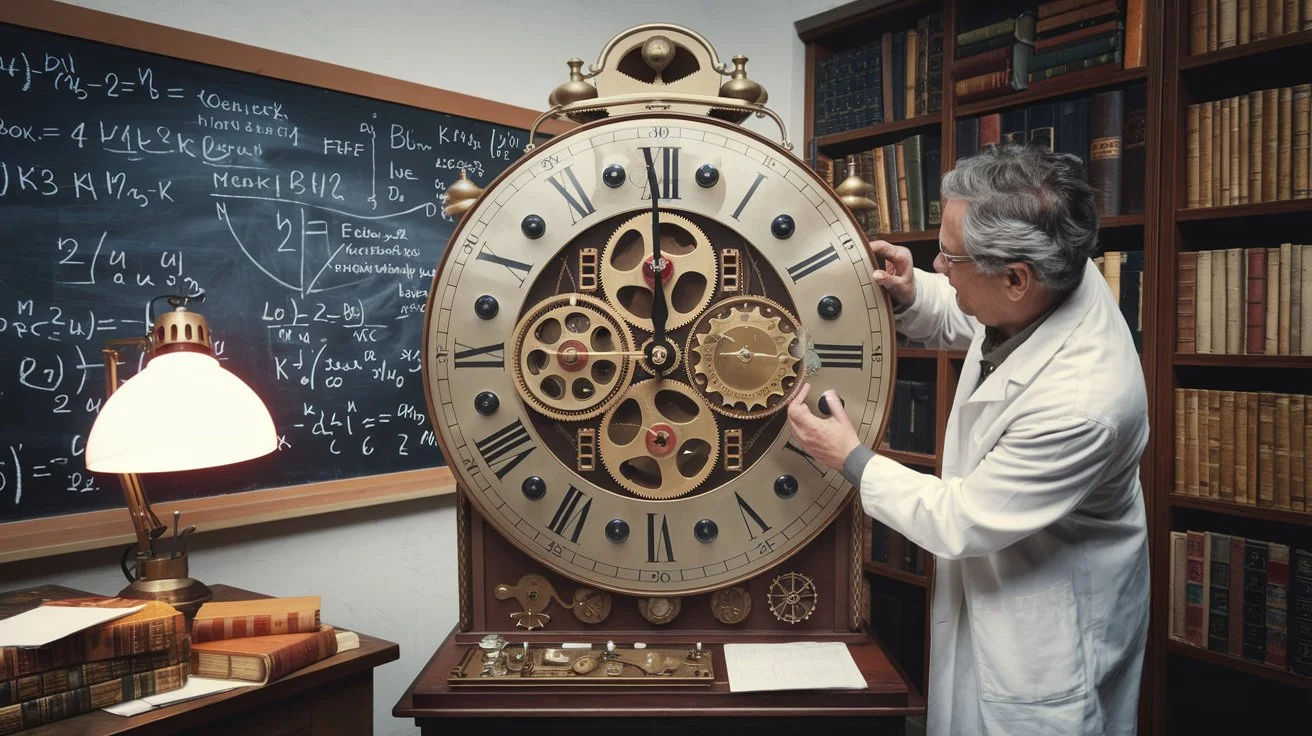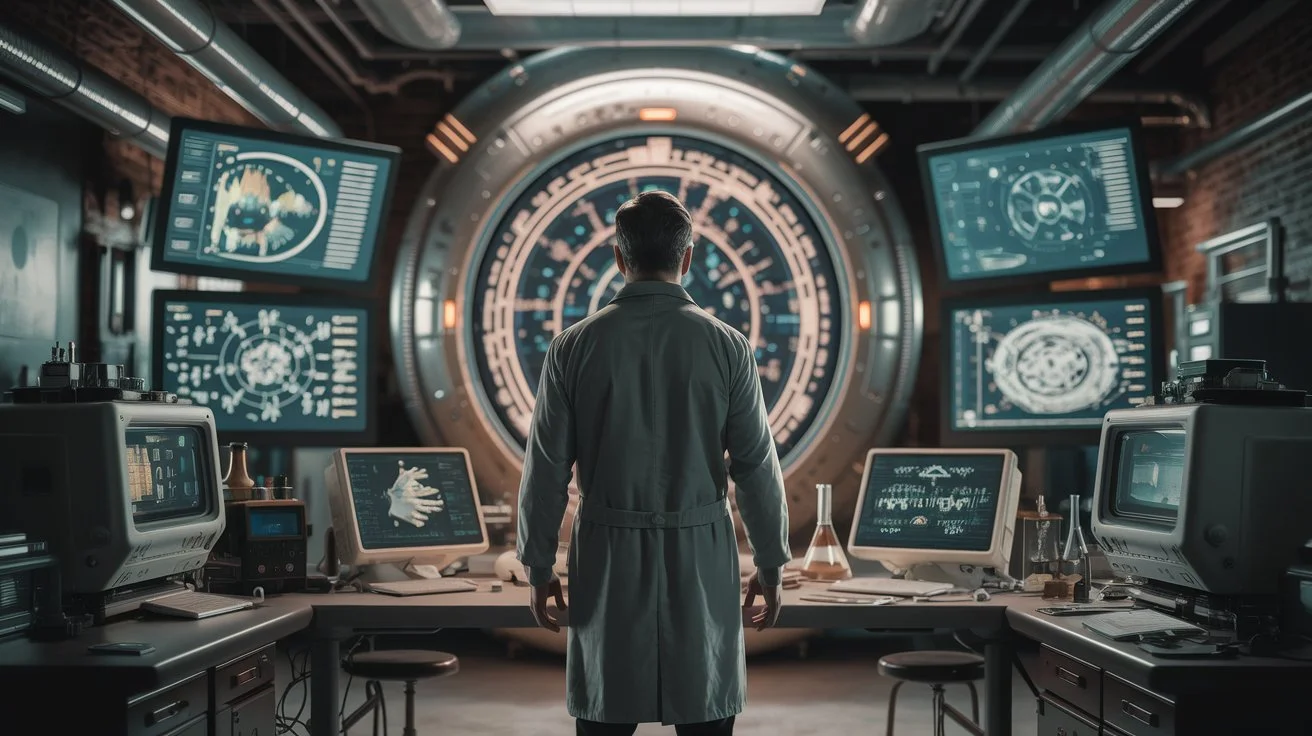Time travel has always fascinated people, from scientists to fans of science fiction. Whether it’s H.G. Wells’ The Time Machine or modern movies like Interstellar, the idea of moving through time has intrigued minds for centuries. But can science actually make time travel possible? Are we getting closer to this extraordinary concept, or is it destined to remain in the realm of imagination? This blog explores the scientific theories, technological challenges, and potential paths toward making time travel a reality.
The Science of Time Travel: Einstein’s Theory of Relativity
When discussing time travel, it’s impossible to ignore Albert Einstein’s Theory of Relativity. This groundbreaking idea completely transformed how we understand space and time. According to Einstein, space and time are interconnected, forming what’s called spacetime. Unlike previous beliefs that considered time to be fixed, his theory suggests that time is flexible—it can be influenced by gravity and speed.
One of the critical outcomes of the theory is something called time dilation. In simple terms, time moves slower for objects that are traveling at very high speeds. We see this in real-life experiments, like with astronauts on the International Space Station (ISS). Because they’re moving so quickly around the Earth, they experience time slightly slower than those of us on the ground. Though the difference is tiny, this phenomenon proves that time isn’t a constant and that traveling into the future is theoretically possible.
Now, what about traveling to the past?
Can We Travel Back in Time? Theoretical Possibilities
While going forward in time might seem feasible based on the concept of time dilation, traveling to the past is much trickier. Scientists have come up with several ideas, but each one faces huge hurdles.
1. Wormholes: The Tunnels Through Spacetime
One of the most popular ideas for traveling back in time involves wormholes. These theoretical passages could connect two different points in spacetime, potentially allowing someone to move through both space and time. These “shortcuts” are predicted by Einstein’s General Theory of Relativity.
However, there’s a big catch—wormholes are purely hypothetical right now. Even if they do exist, they’re believed to be extremely unstable, which means they would collapse quickly, possibly before anyone could pass through them. Some scientists think that using exotic matter (matter that has negative energy) might help stabilize wormholes, but this is purely speculative at the moment.
To dive deeper into this concept, check out this NASA overview on spacetime and wormholes.
2. Cosmic Strings and Time Loops
Another fascinating idea involves cosmic strings. These are hypothetical objects left over from the early universe. Some scientists think that cosmic strings could bend spacetime to create a closed loop, known as a closed timelike curve, allowing time travel into the past.
Although intriguing, cosmic strings are still just a theory, and even if they exist, manipulating them for time travel would require technology and understanding far beyond what we currently possess.
Learn more about cosmic strings in this article on General Relativity.
3. Paradoxes: The Grandfather Problem
The biggest problem with traveling back in time comes from the so-called Grandfather Paradox. Imagine you go back in time and accidentally prevent your grandparents from meeting. If that happens, you would never be born, meaning you wouldn’t have been able to go back in time in the first place.
This paradox raises serious questions about how time travel could work without violating the laws of causality. Some scientists argue that such paradoxes show that backward time travel is impossible. Others suggest that it could lead to the creation of alternate timelines or parallel universes, an idea explored in many sci-fi stories.
For a deeper understanding of this paradox, check out this Scientific American article.

Overcoming Technological Barriers
Even if we could solve the theoretical challenges, there are still massive technological barriers to time travel. To manipulate spacetime, we would need immense amounts of energy. Creating or stabilizing a wormhole, for example, would require more energy than we can currently generate. Furthermore, we don’t yet have the technology to even detect, let alone control, cosmic strings or wormholes.
What About Quantum Mechanics?
In recent years, quantum mechanics has introduced new ideas that could potentially play a role in time travel. Quantum theories, such as entanglement and superposition, challenge our understanding of time and reality. Some physicists speculate that quantum mechanics might hold the key to unlocking time travel, but these ideas are still in their early stages.
Quantum mechanics is highly complex, but to learn more, explore this introduction to the subject.
Is Time Travel Possible?
So, can science really unlock the secrets of time travel? The answer is a mix of yes and no. Time travel into the future is not only theoretically possible but has been demonstrated on a small scale through time dilation. Traveling back in time, however, remains much more speculative. While the theories around wormholes, cosmic strings, and quantum mechanics offer fascinating possibilities, the technological barriers are enormous, and many questions remain unanswered.
The Future of Time Travel: What Lies Ahead?
Science has already made incredible strides in understanding time, but we’re still far from developing a practical time machine. If time travel is to ever become a reality, it will require breakthroughs in both physics and engineering far beyond what we currently know.
As with many scientific advancements, what seems impossible today might one day become a reality. Until then, time travel remains a captivating idea that bridges science and imagination.
